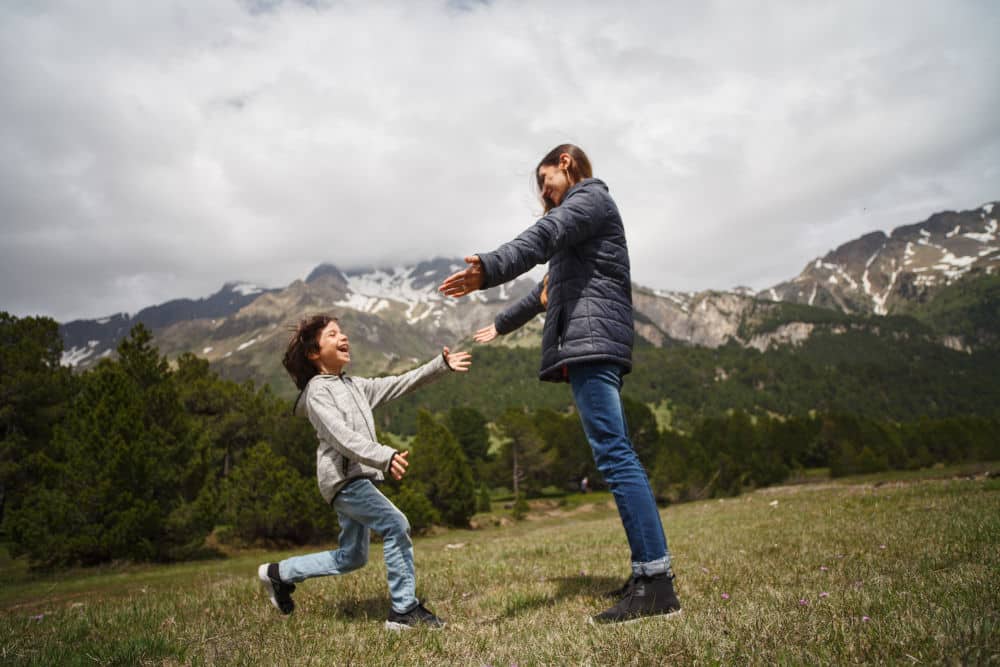
Sadly, in our clinical practice the effects of the pandemic on mental health are becoming more visible by the day. It is only natural that social distancing, the closing of facilities like gyms and shops, the financial burden, the fear of the virus itself and the lack of control, the not knowing what will happen in the next couple of days or months are negatively impacting our mental health. This has prompted me to write about a central benefit in mental health, which is gratitude. Yes, it definitely is not easy to feel grateful during these times. However, practicing gratitude and the virtue of slowing down can support us better during such times.
Here is something light to start with. Let’s take a trip to the world of fantasy. The word gratitude reminds me of a big grey friendly bear from Disney movies, precisely Baloo the bear from The Jungle Book. Watching this movie from the perception of an adult and seeing this bear’s perspective of life and his song ‘the bare necessities’ makes me reflect on the lesson he tries to get across. His emphasis on not ‘spending much time looking around for something you want that can’t be found, when we can live without it, then the simple bare necessities will come to us.’ This reflection makes me wonder about living a meaningful life and about the concept of happiness, even more so today since we have limited access to luxuries like travelling. It is about appreciating and being grateful for what we have today.
What is gratitude?
Gratitude involves being thankful for what you experience in life and about the readiness to show appreciation to your being and surroundings. This is a topic I like to explore from time to time with the addiction group I work with, as they find their insights on gratefulness very useful and valid in their journey of appreciating the little things in life without drugs or alcohol.
In the world we are living in, social media and having more accessibility to practically anything makes us always want more out of life, making it quite difficult to pause, reflect and appreciate the little things we already have, the bare necessities. Such meaningful necessities are connections we have with our family and friends, appreciating the blue sky and also the rain, tasting good food, feeling the sand beneath our feet and smelling the flowers. In other words, taking in all the beauty that we are surrounded with. A positive lookout on life through feeling grateful gives our life meaning, leaving us with a feeling of contentedness and serenity. This also requires us to practice ‘carpe diem’, also known as living in the moment. Such philosophy supports us not to get stuck in shame, guilt, anger or resentment of the past, nor to live in anxiety for the future.
What are the benefits of gratitude?
Researchers at the Greater Good Science Center at the University of California, Berkeley, have commissioned a three-year project, Expanding the Science and Practice of Gratitude which says that practicing gratitude helps to train the brain to be more sensitive to the experience of gratitude, which in turn contributes to boosting mental health. Eventually it also gets us into the habit of noticing the good things that changes in our life bring to us, thus supports us in being more flexible and accepting changes in life. Since the regions in the brain associated with gratitude are part of the neural networks that become active when we socialise and experience pleasure and these same regions are also associated with heart rate and stress relief, it is no news that gratitude can relieve stress. In fact, it supports the body to enter into a more relaxed state. From the same study, people who practice gratitude report having decreased anxiety and depression and experience fewer physical symptoms, have greater goal attainment, better relationships, and engage in more generous behaviour and optimism.

How can we practice gratitude?
Yes, it is possible to change a negative outlook on life to a more positive one. We just need to be aware, observant of our thoughts and emotions and be ready to make a thoughtful shift. This is a mindset, so be patient with yourself as it takes time to grow…keep practicing! Practicing gratitude is basically about affirming the good things we receive, so notice the little things you receive during the day. It can just be finding a parking spot in a busy area. It is also about acknowledging what goodness other people transmit in our lives, which can simply be a strangers’ smile or your partner doing the dishes. As already mentioned, during this pandemic it is difficult to be grateful and this demands more awareness of what goes through our minds. So here are some tips that I hope you can find useful in practicing gratitude;
- Here is Baloo’s lesson – focus on what you have rather on what you do not have. Simply meeting the need of your hungry belly with a dish of pasta, having a two-hour nap, slowly sipping and enjoying your tea, the cat purring on your chest, having work, having connections with people. Ask yourself these questions – What do I have today at hand? How can I make the most of it? How can I appreciate it better? During these times we all feel nostalgic about wanting our past life back but focusing on the here and now can support us not to feel overwhelmed by big emotions.
- Take challenges as opportunities. Ponder recent life lessons you’ve learned. A journal can help you with this as it activates the reward centre of the brain. Try to write life events that made you stronger or taught you a lesson in some way or another. Reflect on what you are thankful for, write it down in your journal and go back to it when you are feeling low. From an intrinsic value, appreciate how far you have come in life; it could be a career, a personal goal, difficult situations you have overcome or adapted to. Appreciate the process of this, the struggles, your attitude, perseverance, or simply your resilience. Looking at such contrasts supports us in setting the ground for gratitude to flourish.
- Seeing the best in others supports us to maintain a positive outlook. Being kind and generous gives us an intrinsic reward which makes us feel fulfilled. Express your care and gratitude towards those around you. Moreover, during this time where the feeling of isolation is prevalent, taking care of each other can make a difference. A simple video chat, dropping off some goodies, or sending a birthday card can make others and yourself feel grateful for having such meaningful connections. Be sure to share your gratitude towards others. Research (Newman, 2019) has shown that sharing gratitude strengthens relationships and that couples who share their blessings are more satisfied with their relationship.
- And finally, engage in a meaningful ritual by slowing down. Find some time during your day to sit still, enjoy your coffee, light a candle and come to your senses. Being mindful of our senses, our sight, hearing, taste, touch and smell not only aids us to stay in the moment but also to appreciate the gift of being able to feel alive. Once during a mindfulness training I attended, we were asked to chew a raisin for 7 minutes. The aim was to be mindful of the taste, the texture and appreciate the experience that a simple raisin has to offer. If you can appreciate a simple raisin, imagine how grateful you can start being towards life, and that would be living a meaningful life, just like Baloo.
References
Newman, K (2019). How a lack of gratitude kills relationships. Mindful: healthy mind, healthy life.






